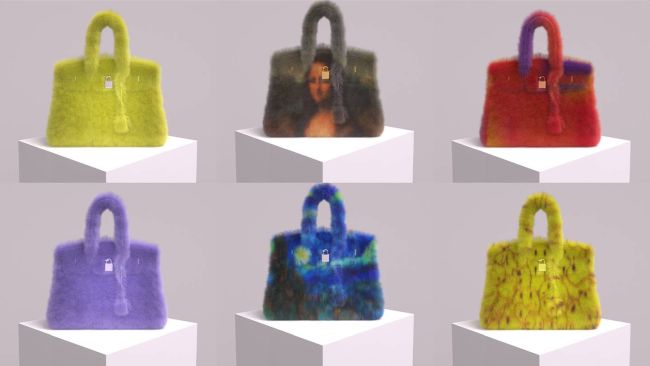In recent years, non-fungible tokens ("NFTs") have grown rapidly as a new form of digital asset. Whilst they have been widely popularised in the art world, NFTs have also been used to represent real-world assets. . This new form of trade has raised interesting legal questions and we have previously written about the case of MetaBirkins, involving the luxury brand Hermès and artist Mason Rothschild

Image source: The Business of Fashion
Going back
We'll start with a quick recap. Hermès is a seller of, high-end handbags that cost a great deal of money (anywhere between USD12 000 and USD200 000) and are sold under the trade mark Birkin. Mason Rothschild, on the other hand, is an artist and designer, often described by his lawyer as a "conceptual artist".
Hermès recently sued Rothschild in a New York court for trade mark infringement and dilution. The basis of the claim was that Rothschild was marketing and offering for sale NFTs of Birkin handbags, bags that were covered in fur, patterns and even artworks like Van Gogh's painting Starry Night.
Rothschild's NFTs were sold under the name MetaBirkins. The name is clearly derived from Hermès' trade mark Birkin, with the word Meta seemingly intended to be suggestive of the weird and wonderful place we call the Metaverse. NFTs, it turns out, can fetch good prices. Rothschild managed to sell 100 MetaBirkins NFTs for USD1-million. As Rothschild said in one smug text to colleagues, "we're sitting on a goldmine".
A disclaimer
There's an interesting aside: the MetaBirkins NFTs that Rothschild sold did actually contain a disclaimer saying that there was no association between the product and Hermès. Yet, Hermès contended that this disclaimer increased rather than decreased the likelihood of confusion or deception, because the disclaimer in itself created a mental link with Hermès.
The court papers
Hermès made a number of claims in its papers. It accused Rothschild of being a "digital speculator who is seeking to get rich quick by appropriating the Hermès brand". The company went on to say that the "MetaBirkins brand simply rips off Hermes' famous Birkin trademark by adding the generic prefix ''meta'.
The court's judgment
The judge described the case as being one that "raises questions about how trademark protections for real world items will be enforced in the digital realm as commercial activity heats up in the metaverse." The judge dealt with various aspects:
Trade mark infringement
The judge seemingly had no hesitation in finding that Mason Rothschild had, through his use of the name MetaBirkins, infringed the trade mark rights of Hermès. The court accepted the argument that consumers would assume that the NFTs were associated with the handbag brand. The court awarded Hermès damages in the sum of USD133 000.
The "I'm the new Andy Warhol" defence
In his defence, Rothschild claimed that the NFTs constituted a protected form of free speech. The argument was that the bags had been portrayed as "whimsical" pieces showing purses covered in fur, or sometimes with a red Santa cap.
Rothschild went on to describe his depictions of bags as an "absurdist comment" on the excesses of the fashion world. He said," I'm not creating or selling fake Birkin bags... I'm creating artworks that depict imaginary fur-covered Birkin bags." At some point, Rothschild even argued that his NFTs were similar to Andy Warhol's reproductions of Campbell soup cans, and therefore should be protected under the First Amendment as "protected speech".
It's just another product
The court wasn't having any of this arty-farty stuff. The judge held that the NFTs should be treated as consumer products subject to trade mark law. Hermès had claimed that it had plans to issue its own NFTs, and that Rothschild's actions had got in the way of that.
What's to come?
This is clearly an important development on the issue of NFTs. There will be trade mark owners who welcome the judgment. But there will certainly be people who feel that the judgment may have a chilling effect on artistic expression. There are bound to be further developments, including appeals and similar cases in other states or countries
The content of this article is intended to provide a general guide to the subject matter. Specialist advice should be sought about your specific circumstances.

